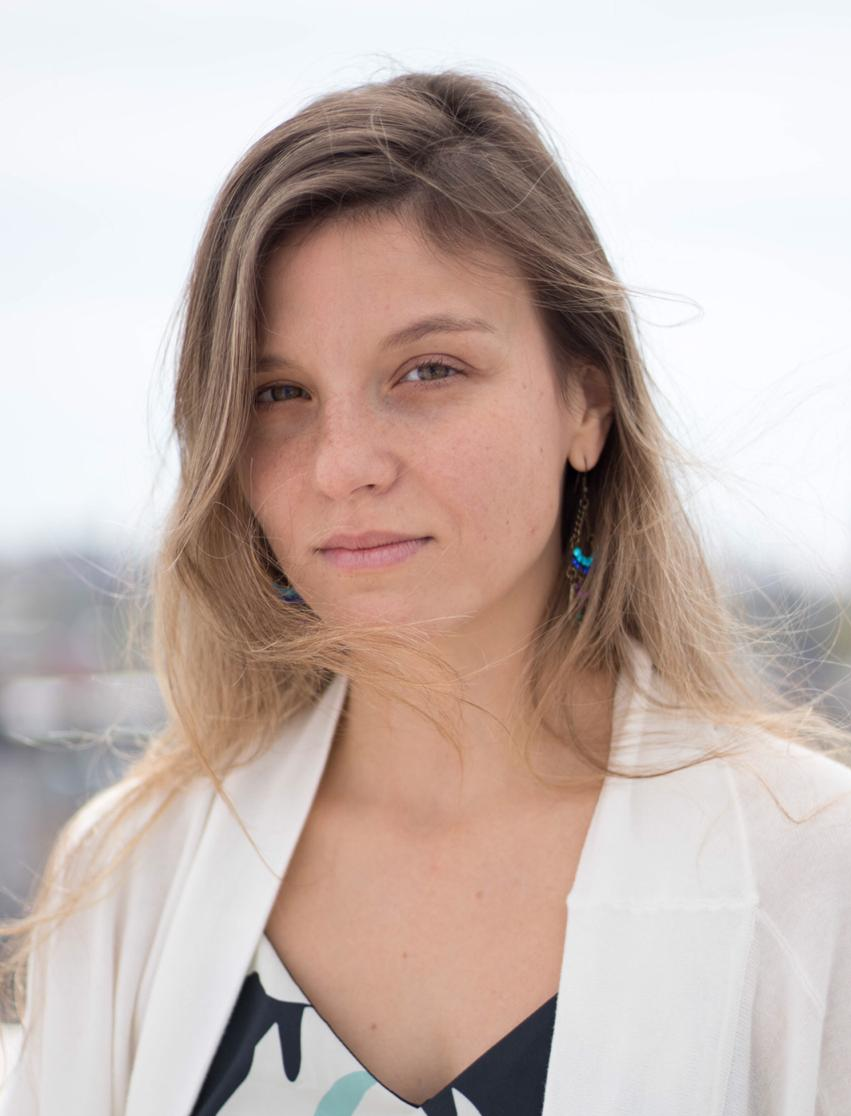Interview with Ailin Tomio
- Merle van den Akker
- Jun 21, 2021
- 4 min read
Behavioural Science is a rapidly expanding field and everyday new research is being developed in academia, tested and implemented by practitioners in financial organisation, development agencies, government ‘nudge’ units and more. This interview is part of a series interviewing prominent people in the field. And in today's interview the answers are provided by Ailin Tomio.
Ailin is a behavioral consultant for the World Bank, IADB and PAHO in Latin America. She is also the founder of despamethod.com, a behavioural insights consultancy based in Argentina. Ailin holds a BA in Cognitive Psychology & Neuroscience at Universidad Favaloro, and a Masters in Social & Consumer Psychology at NYU. She also has several years of academic research experience in cognitive neuroscience (where she specialized in measuring brain reactions (EEG) towards aesthetic experiences and motor empathy). Ailin teaches several courses on Customer Experience, Social Psychology and Innovation Strategies for different Argentine universities. And she currently leads a community of behavioural insights enthusiasts in Argentina called Behavioral Insights Argentina.
Who or what got you into behavioural science?
When I was at high school I loved science but I also loved art and creative activities, so when it came the moment to decide my profession I struggled. I tried architecture, then biology and then philosophy. I couldn't find a place where creativity and science met. At the time, someone mentioned that neuroscience and psychology would be a good option because it was a science based discipline, but there was a lot to discover yet. So I delved into it.
After studying my Ba in Psychology and Neuroscience I knew I wanted to investigate how to foster creativity in different settings and how design can change how people behave. And that's how I got to behavioral sciences and fell in love with the discipline.
What is the accomplishment you are proudest of as a behavioural scientist? And what do you still want to achieve?
After doing my masters in Social & Consumer Psychology at NYU, I came back to Argentina and started working in government. People here were interested in what I did, but nobody really thought It mattered. So I asked my boss at the time, If he would let me show him evidence that behavioral insights worked, and I had the opportunity to design two trials based on behavioral sciences in order to increase attendance of citizens to government appointments and increase their payment of mortgage credits. The trials showed significant impact and that led me to connect with more people in government that wanted to do the same stuff. Those first steps took me where I am now, being an active part of a community that is trying to make the field grow in our country and Latin America. And I am proud of being part of that community.
I would like to be able to help the discipline grow in my country, and help governments to implement evidence based policies, putting people at the center of their design. Currently, I am working in 5 projects with different governments in Latin America in order to introduce the behavioral sciences point of view and the relevance of measuring the impact of interventions.
If you weren’t a behavioural scientist, what would you be doing?
I dream of painting murals in different cities like Banksy (yes, not improbable at all, right? 😅)
How do you apply behavioural science in your personal life?
I am usually aware about the stress that causes having cognitive load, so I use lists, reminders and calendars to allow my mind to focus only in the important things.
I also try to analyze how social norms affect how I behave and feel, and try to be aware of my own biases in relation to that (which doesn't mean that in the end I can control them)
With all your experience, what skills would you say are needed to be a behavioural scientist? Are there any recommendations you would make?
I would say the most important ones are critical thinking, creativity, and observational and analytical skills. I would recommend people that are interested in this field to train their analytical skills and critical thinking, but also, challenge themselves to learn from diversity. A behavioral scientist has to be able to apply standard tools to very different contexts and adapt them to different communities, without forgetting to be cautious of the conclusions they make after each intervention.
How do you think behavioural science will develop (in the next 10 years)?
I think it will go from being a hype (many people now think we have magic solutions) to simply be a respected discipline with its own limitations that has gained its place as a must when designing products, services or public policies. I also think it is our responsibility now to build that respect, by not promising things that the discipline can't achieve.
Which other behavioural scientists would you love to read an interview by?
Lucía Macchia, from Harvard University and Karen Ye from Chicago University
Thank you so much for taking the time to answer my questions Ailin! It's great to hear what's going on in Argentina :)
As I said before, this interview is part of a larger series which can also be found here on the blog. Make sure you don't miss any of those, nor any of the upcoming interviews!
Keep your eye on Money on the Mind!


























